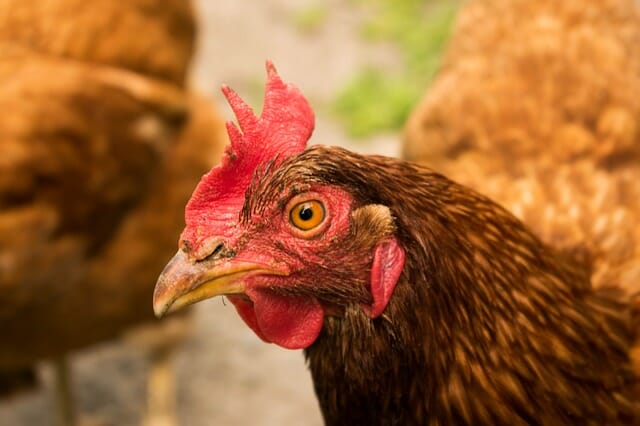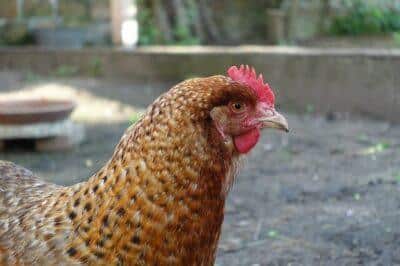Chickens are arguably the most efficient livestock you can own. They take up little space, are easy to care for, and produce both meat and eggs. However, feeding them can still be expensive, especially if you rely on pricier organic feeds for your flock. With egg prices remaining near ten-year lows [2], feeding your chickens as economically as possible is especially important right now.
Fortunately, there are several steps that you can take to keep your feed costs manageable. And while you may not eliminate your trips to the hardware store for another bag of layer pellets or cracked corn, you can certainly reduce the number of trips you have to take this year. Here are four great tips for lowering feed costs with the chickens you raise.
1. Range free and far
If chickens are penned up, they are completely reliant on the food you provide them. But if you let them roam free, they will be able to forage and eat grasses, seeds and any hapless bugs that come their way. Free-ranging your chickens will enable them to get much of the nutrients they need, and will help make the feed you purchase go a long way. Many people believe that eggs from free-range chickens taste better, [3] too.
You also can set the chickens on your garden beds in the fall, and let them devour dead vegetables, plants and any bugs that are setting up shop there. The key with free-ranging your chickens is ensuring they are protected from predators (and themselves, since some chickens are prone to wandering) with good fencing. If you are uncomfortable with letting your chickens roam completely free, then you can compromise and set them in a chicken tractor [4] that you move around your homestead every few days.
2. From table to coop
Hopefully you are accustomed to composting your table scraps, and an additional trip to the chicken run with a pale of leftovers is no big deal. If not, you can still start feeding your chickens table scraps today.
Diatomaceous Earth: The All-Natural Livestock De-Wormer! [5]
Chickens can eat most of the things that we eat, although there are some foods [7] that should be avoided. Your birds will make good use of the leftovers and food waste that you otherwise would compost or throw away. Food items like cooked vegetables, grains, breads and meats (cut into small pieces) make great feed for your chickens. Simply keep a food-safe plastic pale in your kitchen, add the scraps to it as you prepare or finish meals, and then feed them to the flock.
3. Grow bugs
It’s no secret that chickens love to eat bugs; throw a grasshopper in front of a few hungry hens and watch what happens! However, many people don’t realize that bugs are full of protein, and some bugs are easy to grow as a food source for your birds.
One easy-to-grow food source bug is the lowly mealworm. Mealworms are the larva of the mealworm beetle; chickens love to eat them, they are loaded with protein, and they make a great food [8] for your layer flock. Raise them in plastic containers or old aquariums, and keep an ever-replenishing supply of mealworms on hand. So purchase a mealworm starter culture, and start growing them today.
4. Cull older birds
One of the most effective ways to reduce the cost of raising chickens, especially if you are focused on laying hens, is to cull the older birds. Most chickens’ egg-laying capacity declines precipitously after two years; keeping them around after that does little more than add to your feed costs.
Birds that reach two years or so should be destined for the stew pot. Alternatively, you could sell them or give them away on Craigslist to people interested in chickens as pets. You also should ensure that you limit the number of roosters you have on hand, if any; unless you are using different roosters for a breeding program to fertilize eggs, having more than one doesn’t make much sense for a cost-conscious homesteader.
How do you feed your chickens “on the cheap”? Share your tips in the section below:

